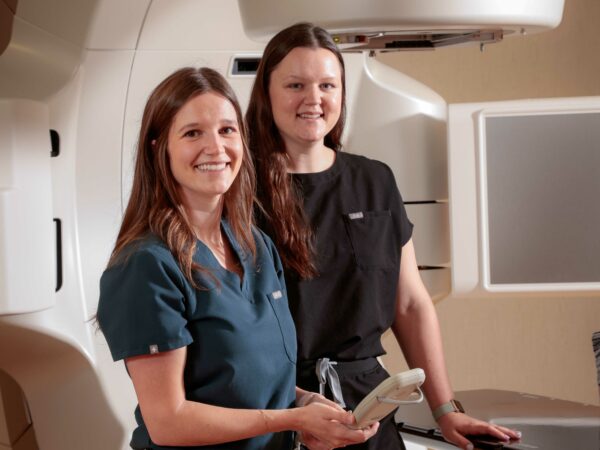May is almost here, and with the bloom of Spring comes the 32nd annual Twin Cities Susan G. Komen Race for the Cure. The Race for The Cure is a yearly gathering of the community of patients, families, and medical professionals who deal with this disease on a daily basis.
 In addition to being a fund-raiser for ongoing breast cancer research, the event is a celebration of positivity, life, and hope. So right now is a good time to talk about just how important those positive vibes can be for breast cancer patients and their families. More and more, researchers are discovering the significant role played by the mental and emotional components of cancer care, and the positive effects they can have on cancer treatment.
In addition to being a fund-raiser for ongoing breast cancer research, the event is a celebration of positivity, life, and hope. So right now is a good time to talk about just how important those positive vibes can be for breast cancer patients and their families. More and more, researchers are discovering the significant role played by the mental and emotional components of cancer care, and the positive effects they can have on cancer treatment.
Breast cancer attacks body and mind.
Cancer is an assault on the body, but for many women, breast cancer is also an assault on their womanhood: their self-identity. For this reason, the mental aspects of breast cancer – stress, depression, and fatigue – can be particularly debilitating. However, just as the disease itself is treatable with radiation therapy, chemo, and surgery, there is help for the mental problems associated with it. There is a wide variety of antidepressants and anti-anxiety medications available, but some of these may have undesirable side effects of their own.
According to the National Institutes of Health (NIH) mindfulness is being used increasingly in various aspects of cancer management, and the benefits of mindfulness practices are being studied to manage the side effects of treatment and symptoms from cancer progression. While mindfulness practices such as meditation are not meant to replace traditional medical treatments, they can be used in conjunction with them to provide a more comprehensive approach to managing symptoms and improving quality of life.
Mindfulness: mastering the mental game
The practice of mindfulness goes back thousands of years, and while it’s often associated with Buddhist and Hindu practices, it’s important to note that mindfulness is not itself a religion. Anyone of any creed can enjoy the benefits of the practice.
If you look in the Merriam-Webster dictionary, mindfulness is defined as: “(a) The quality or state of being mindful and (b) The practice of maintaining a nonjudgmental state of heightened or complete awareness of one’s thoughts, emotions, or experiences on a moment-to-moment basis.” The current approach practiced in our own health care system is a way to achieve a state of mind that is aware and in control. This approach, in turn, reduces stress, improves physical health, and promotes a greater sense of wellbeing.
According to NIH studies, mindfulness has been shown to reduce pain, cancer-related fatigue, weight loss, and sleep disturbances in cancer patients. In addition, it can help improve quality of life during radiation therapy and boost immune response. But the benefits aren’t limited to breast cancer patients; caregivers and family support teams can also reduce their own stress with the practice.
How do I begin?
Mindfulness is a way to steady yourself if you feel overwhelmed. It means consciously bringing awareness and receptiveness to your here-and-now experience, with openness and interest, or, to short-hand it, getting in touch with your feelings. This can help you feel less anxious and more balanced and relaxed.
For those interested in starting a meditation practice, starting with just a few minutes per day and gradually working up to longer sessions. Take slow deep breaths. Focus your thinking on the things that matter most to you at any given moment in time. According to Breast Cancer Now.org, mindfulness is an attitude, a way of paying attention to yourself and finding a way to regulate your thoughts and emotions. It’s based on four simple steps:
Notice your emotions. This may sound obvious, but in reality, many of us are disconnected from our day-to-day emotional experiences. We become caught up in our thoughts, work, or daily tasks and we miss the subtle signs of our emotions until they build up and become overwhelming.
Observe the way you’re feeling. Sit with your feelings; there’s no right or wrong way to feel. This can help you build emotional resilience and gives you the opportunity to reflect on the root causes of your emotions. It’s tempting to avoid observing by distracting yourself with work, social media, or even food. But when we bury our feelings, they often get build up, get stronger, and become more difficult to manage.
Name your emotions. This helps you externalize them and create space between you and your feelings, reducing their intensity. Specific emotions are neither good nor bad—they simply are.
Accept your feelings. By contacting your emotional experiences directly, without feeling defensive about them, you open yourself up to experience the world as it is, not as your mind says it is.
A recent study by the National Institutes of Health found that almost half of cancer survivors suffer from of moderate to severe Cancer Related Fatigue, and that it’s a major cause of stress. The same study showed that mindfulness practices significantly reduced stress during radiation therapy. And the benefits aren’t only limited to patients; the same stress and pain that the patients suffer can also affect your family and/or caregivers.
At MRO, we’ve dedicated ourselves to caring for the physical needs of patients, but it’s important to understand that the mental aspects of breast cancer – your attitude– can be equally important to your health. So get your mind in the game and keep those good vibrations coming.
A great way you can start is by joining other breast cancer survivors and their families, along with us at MRO, May 10 at Twin Cities Susan G. Komen Race for the Cure at Viking Lakes in Eagan. MRO is once again proud to be a sponsor. Whether you walk, run, or participate virtually, you’re sure to find it inspirational.
LINKS
https://www.komen.org/blog/mindfulness-meditation-for-those-living-with-breast-cancer/
https://breastcancernow.org/about-us/news-personal-stories/what-mindfulness


